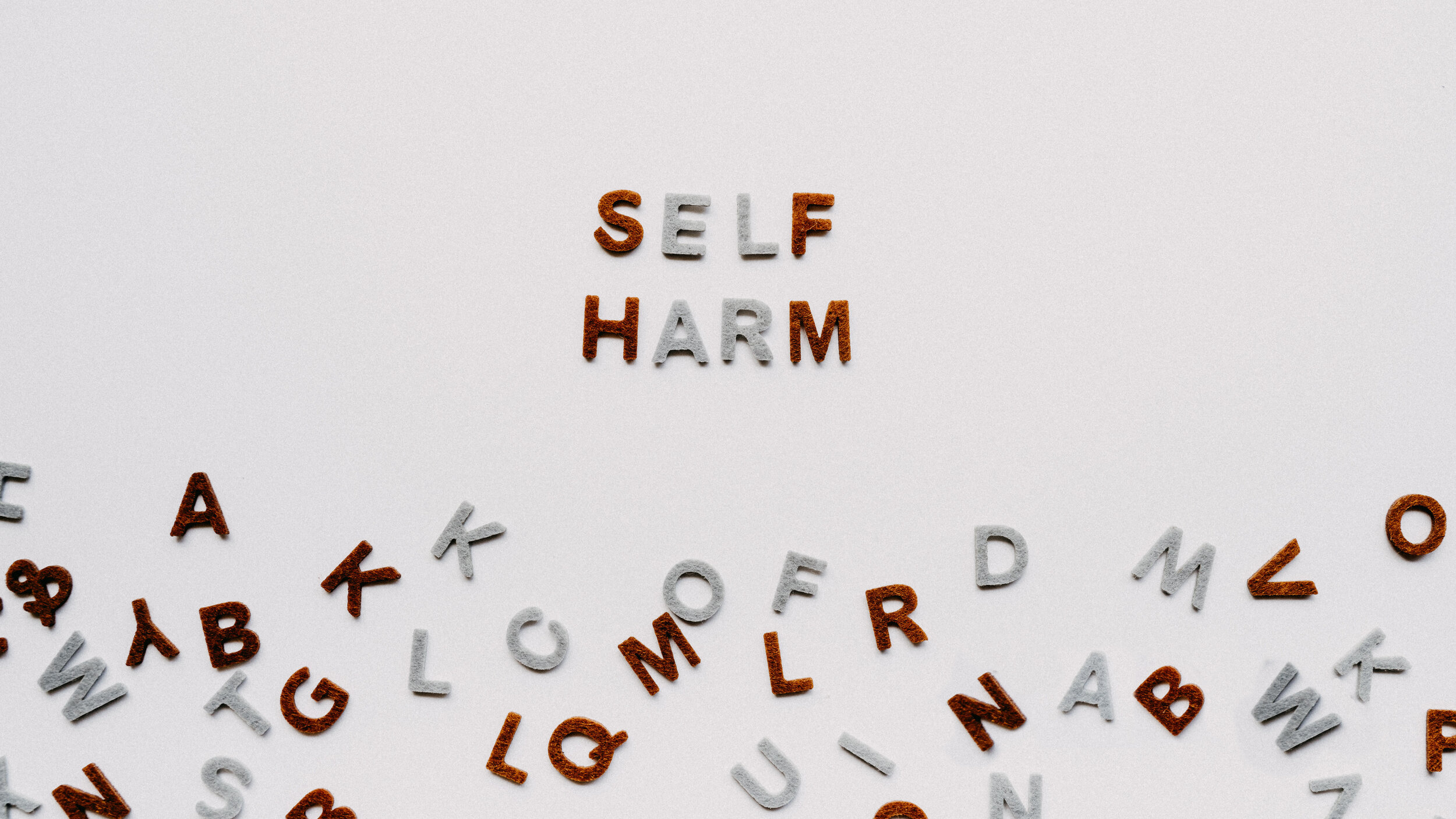Self-harm
Self-harm is a maladaptive coping mechanism – something that may make you feel better in the moment, but is an overall harmful way to deal with a problem.
Self-harm refers to anything that you do to intentionally hurt yourself — or something that you know is harmful but you do anyway. In a lot of situations, the goal of self-harm isn’t the harm itself — the goal is to distract from or release underlying emotional pain.
What causes self-harm?
It is important to remember that self-harm is not attention-seeking behavior, but a manifestation of deeper pain. Self-harm is a complex behavior influenced by various factors, and its causes can vary from person to person. Some common causes of self-harm behaviors include::
Emotional distress
Low self-esteem
A history of trauma or abuse
Mental health conditions like depression or anxiety
Difficulties in coping with overwhelming emotions
What are the different forms of self-harm?
Self-harm can take many different forms, and may not always be immediately noticeable. Here are some common ways in which self-harm can manifest:
Cutting
This involves intentionally cutting or scratching one's skin, often with sharp objects like razors or knives. It usually leaves visible marks or scars.
burning
Inflicting burns on oneself using hot objects, such as cigarettes, lighters, or heated objects. Burn marks may be visible on the skin.
Scratching or Pinching
Intentionally scratching the skin to the point of causing wounds or using excessive force to pinch the skin.
biting
Biting oneself, leading to bruises, broken skin, or wounds.
hitting or punching
Striking oneself, often with fists or objects, resulting in bruises or injuries.
hair pulling
Pulling out one's hair, leading to noticeable patches of missing hair.
Excessive Nail Biting
Persistent biting of nails, cuticles, or surrounding skin, sometimes causing bleeding or damage to the fingers.
Bone Breaking
Extreme cases may involve intentionally breaking bones, often resulting in severe injuries.
It's important to note that self-harm isn't limited to these methods and can encompass other forms of self-injury. Additionally, people engaging in self-harm may try to conceal their actions, making the results of their behavior challenging to identify. If you suspect someone is self-harming or if you are struggling with self-harm, seeking professional help is crucial for support and recovery.
How to help someone struggling with self-harm?
If you suspect someone is engaging in self-harm or if you are struggling with self-harming behaviors, seeking professional help is extremely important. Encourage open communication and offer non-judgmental support, expressing your concern and willingness to listen. Encourage the individual to reach out to a mental health professional, such as a therapist or counselor, who can provide the necessary guidance and support.
Sadly, one of the hard truths we must accept about helping someone who is self-harming is that we can’t make them stop — only they can make that decision. While we can’t stop their pain, we can be there for them, support them, and get them connected to the resources they need.
How can someone work through self-harm?
Working through self-harm requires a multifaceted approach and professional guidance. Here are some steps and strategies that can help individuals on their journey to recovery:
Seek professional help
Consulting with a mental health professional, such as a therapist, counselor, or psychiatrist, is essential. They can provide a safe space for exploring the underlying issues contributing to self-harm, offer guidance, and develop personalized treatment plans.
Develop healthy coping mechanisms
Identifying and practicing healthier ways to cope with emotional distress is crucial. This may include learning and utilizing relaxation techniques (deep breathing, mindfulness), engaging in creative outlets (art, writing), finding support from trusted individuals, and participating in activities that bring joy and fulfillment.
Cognitive-Behavioral Therapy (CBT)
CBT can be highly effective in addressing self-harm. It focuses on identifying and challenging negative thought patterns, developing healthier beliefs and coping strategies, and building skills to manage emotions and stress.
Dialectical Behavior Therapy (DBT)
DBT is specifically designed to help individuals struggling with self-harm and emotional dysregulation. It combines various techniques such as mindfulness, distress tolerance, emotion regulation, and interpersonal effectiveness skills to enhance coping skills and create a more balanced life.
Support network
Building a supportive network is crucial in the recovery process. This can include trusted friends, family members, support groups, or online communities where individuals can share their experiences, seek guidance, and receive empathy.
Safety measures
Creating a safe environment is important to prevent immediate harm. This may involve removing or securing items used for self-harm, developing a safety plan, and having emergency contacts readily available.
self-compassion and self-care
Practicing self-compassion and self-care is essential. Learning to treat yourself with kindness, understanding that setbacks may occur, and prioritizing self-care activities that promote well-being can contribute to a healthier mindset and lifestyle.
MEDICATION
In some cases, medication may be prescribed by a psychiatrist to manage underlying mental health conditions that contribute to self-harm, such as depression, anxiety, or mood disorders. It is crucial to work closely with a healthcare professional to determine the appropriate medication and dosage.
Remember, working through self-harm is a gradual process that requires patience, perseverance, and professional support. Each individual's journey is unique, and the path to recovery may involve setbacks. It is important to reach out for help, surround oneself with support, and celebrate even small victories along the way.
For more information, check out these links below.
Take a free mental health screen
A mental health screen is a simple series of questions to help you check in with your mental health. Mental Health America’s online screening tool is free, confidential, and available 24/7. Your results aren’t a diagnosis, but they’re a great place to start and a baseline to figure out next steps. We encourage you to share them with your doctor so they can help you get any support you may need.
Other Resources
S.A.F.E Alternatives
selfinjury.com
National Institute of Mental Health
nimh.nih.gov
National Suicide Prevention Lifeline
988
suicidepreventionlifeline.org



